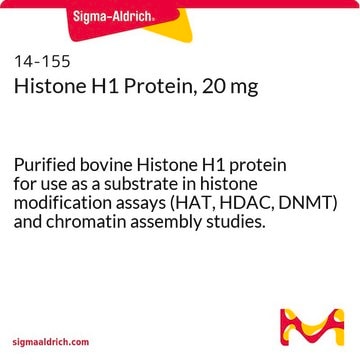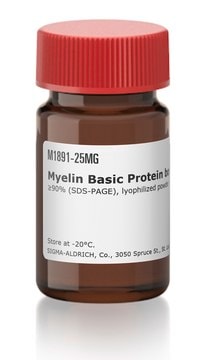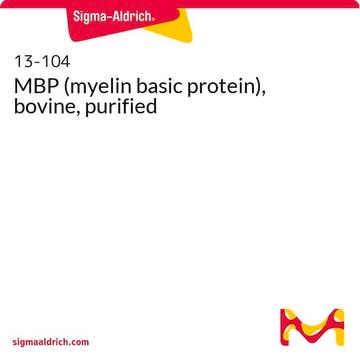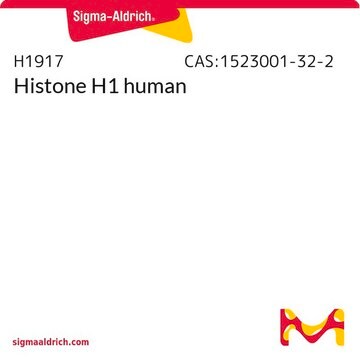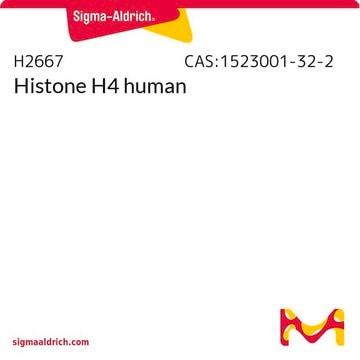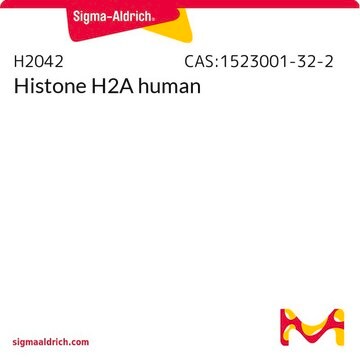14-697
Histone H4 Protein, human recombinant, 1 mg
Recombinant human histone H4 produced in E. coli, purified by FPLC. For use in Enzyme Assays & Western Blotting.
Synonym(s):
H4, Histone H4
Sign Into View Organizational & Contract Pricing
All Photos(1)
About This Item
UNSPSC Code:
12352202
eCl@ss:
32160405
NACRES:
NA.32
Recommended Products
biological source
human
Quality Level
recombinant
expressed in E. coli
mol wt
Mw 11 kDa
manufacturer/tradename
Upstate®
technique(s)
activity assay: suitable
western blot: suitable
NCBI accession no.
UniProt accession no.
shipped in
dry ice
General description
Recombinant human histone H4 produced in E. coli.
Quality
routinely evaluated as a substrate for in vitro enzymatic reactions.
Legal Information
UPSTATE is a registered trademark of Merck KGaA, Darmstadt, Germany
Storage Class Code
11 - Combustible Solids
WGK
WGK 1
Flash Point(F)
Not applicable
Flash Point(C)
Not applicable
Certificates of Analysis (COA)
Search for Certificates of Analysis (COA) by entering the products Lot/Batch Number. Lot and Batch Numbers can be found on a product’s label following the words ‘Lot’ or ‘Batch’.
Already Own This Product?
Find documentation for the products that you have recently purchased in the Document Library.
Expression and purification of recombinant human histones.
Tanaka, Yoshinori, et al.
Methods, 33, 3-11 (2004)
Characterization of nucleosome core particles containing histone proteins made in bacteria.
Luger, K, et al.
Journal of Molecular Biology, 272, 301-311 (1997)
Expression, purification, and structural characterization of human histone H4.
Vergani, Laura, et al.
Protein Expression and Purification, 24, 420-428 (2002)
Matthew V Holt et al.
Current protocols, 1(2), e26-e26 (2021-02-04)
Histones are the primary protein component of chromatin and are involved in virtually all DNA-templated processes. Histones are abundantly post-translationally modified by a variety of chromatin-modifying machinery. These post-translational modifications (PTMs) are recognized by a range of "reader" proteins, which
David Shechter et al.
Nature protocols, 2(6), 1445-1457 (2007-06-05)
Histone proteins are the major protein components of chromatin, the physiologically relevant form of the genome (or epigenome) in all eukaryotic cells. Chromatin is the substrate of many biological processes, such as gene regulation and transcription, replication, mitosis and apoptosis.
Our team of scientists has experience in all areas of research including Life Science, Material Science, Chemical Synthesis, Chromatography, Analytical and many others.
Contact Technical Service